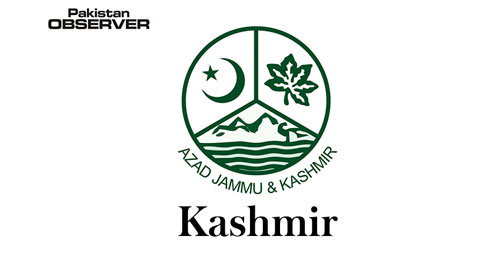The Japan Times, Japan’s largest and oldest English-language daily newspaper, in its latest edition painted the gloomy picture of state of journalism in Indian illegally occupied Jammu and Kashmir.
The newspaper carried an article by Suhasini Raj wherein the writer said that repeated arrest of journalist Aasif Sultan under different black laws is the latest instance, in which Indian authorities have weaponized the legal system to limit free speech and harass journalists in the disputed Kashmir region.
“After being held in jail for close to four years awaiting trial on charges of aiding militants, Kashmiri journalist Aasif Sultan was granted bail by the courts last week, and he thought he could finally return home to his wife and his daughter, who was just 6 months old when he was arrested,” said the article titled Kashmir journalists face forbidding pattern: arrest, bail, re-arrest.
“But Indian authorities did not let him go, levying similar charges under a different law, and have since moved him to a different jail. Sultan’s case is the latest instance, rights activists say, in which Indian authorities have weaponized the legal system to limit free speech and harass journalists, particularly those in the Indian-controlled portion of the disputed Kashmir region.”
The article went on to add: “Some have been arrested under laws that allow people to be held for extended periods without trial and that make bail terms extremely difficult and sometimes impossible.”
“Sultan is now being held under the stringent Jammu and Kashmir Public Safety Act, a preventive detention law that lets the region’s authorities keep a suspect in jail for a maximum of two years — without any formal criminal charges being filed, and so without any trial and with no hope for bail — if local authorities contend that the person presents a security risk or a threat to public order.”
“Activists argue that the law violates international human rights, and lawyers say Indian authorities have used it to round up Kashmiris posing no threat of violence, including journalists, students and those with sizable political or economic sway in the region.”
“The Public Safety Act is based on the apprehension that one may do something illegal and not that one may have done something illegal,” said Shafqat Nazir, a lawyer who practices at the High Court of Srinagar, Kashmir’s largest city. “Just on the basis of an apprehension, one can rot in jail for two years.”
“Sultan’s experience — a detention extended either just after a court grants bail or just before a bail hearing — has become a pattern, applied against at least two other Kashmiri journalists arrested in recent months.”
“Fahad Shah, editor-in-chief of a news website called The Kashmir Walla, was first arrested in February. He has been arrested three times since then, with authorities bringing new charges as soon as he received bail in the previous ones.” “And Sajad Gul, a trainee reporter for The Kashmir Walla, was arrested Jan. 5 for uploading a video he had recorded of the family of a slain militant in which they were displaying anti-India slogans, police said, according to local media reports. He got bail 10 days later. But before he was released, authorities informed him that he would continue to be held under the Public Safety Act.”
Activists point to the government’s grounds for detaining Shah, who has reported widely on Kashmir for international publications, as evidence of how loosely the Indian government interprets the Public Safety Act to silence journalists.”
“Shah was described by police as an “anti-national element under the cover of journalism” who is ‘continuously propagating stories which are against the interest and security of the nation’.” “Yashraj Sharma, who has been leading The Kashmir Walla since Shah’s detention, said the government’s practice of arrests, then rearrests, was sending a chilling message to journalists.”
“Every time we hit the publish button, we are not sure if that particular story will land us in jail the next day,” Sharma said. “Regional media has been squished.”
“…rights activists say the clampdown on Kashmir’s media has intensified since 2019, when Modi’s government revoked the state’s special status, which had given it a degree of autonomy, and dissolved its elected government, bringing the region under direct control of the federal government.”
[The above article originally appeared in The New York Times.]










